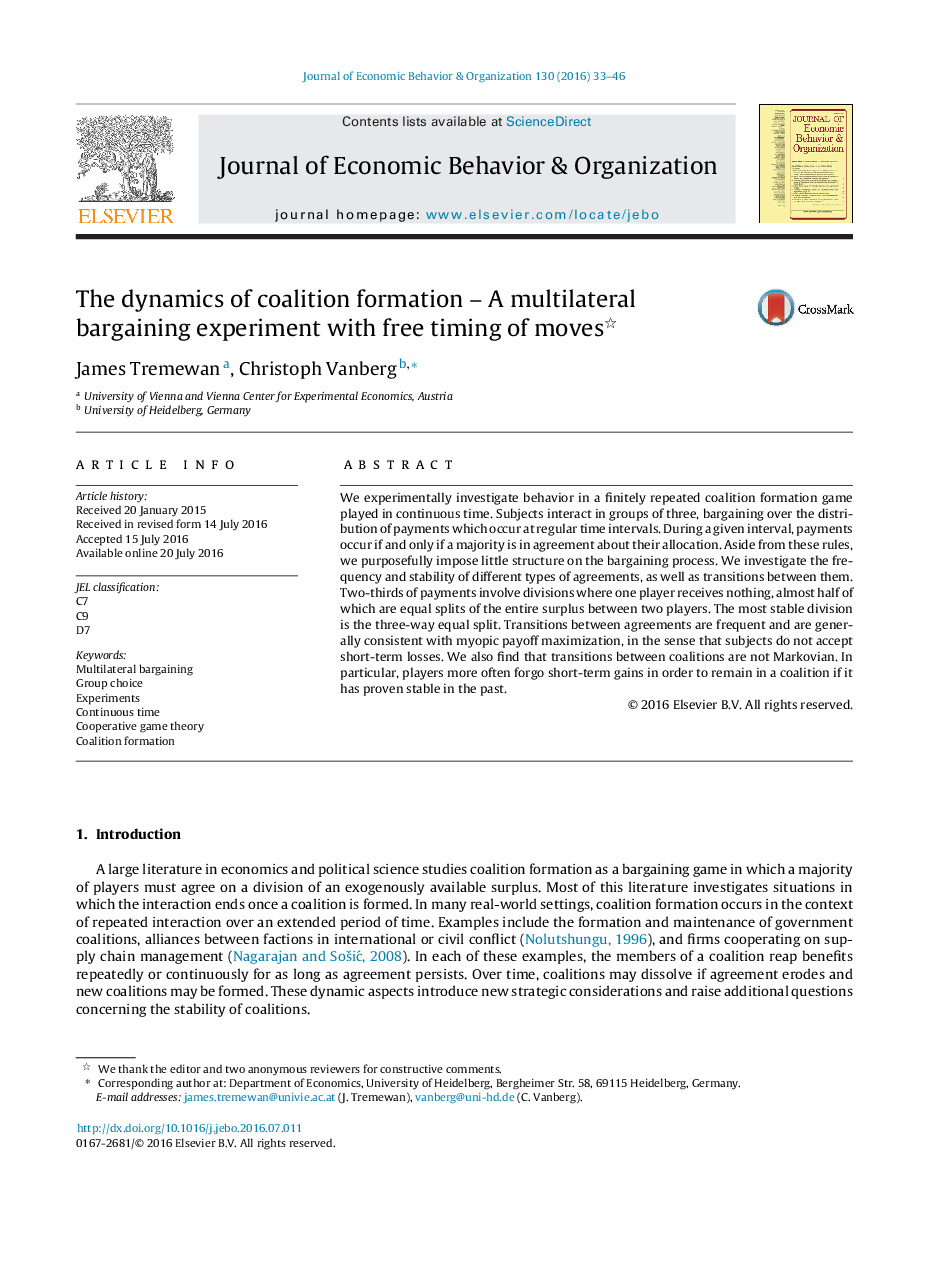| Article ID | Journal | Published Year | Pages | File Type |
|---|---|---|---|---|
| 7242734 | Journal of Economic Behavior & Organization | 2016 | 14 Pages |
Abstract
We experimentally investigate behavior in a finitely repeated coalition formation game played in continuous time. Subjects interact in groups of three, bargaining over the distribution of payments which occur at regular time intervals. During a given interval, payments occur if and only if a majority is in agreement about their allocation. Aside from these rules, we purposefully impose little structure on the bargaining process. We investigate the frequency and stability of different types of agreements, as well as transitions between them. Two-thirds of payments involve divisions where one player receives nothing, almost half of which are equal splits of the entire surplus between two players. The most stable division is the three-way equal split. Transitions between agreements are frequent and are generally consistent with myopic payoff maximization, in the sense that subjects do not accept short-term losses. We also find that transitions between coalitions are not Markovian. In particular, players more often forgo short-term gains in order to remain in a coalition if it has proven stable in the past.
Keywords
Related Topics
Social Sciences and Humanities
Economics, Econometrics and Finance
Economics and Econometrics
Authors
James Tremewan, Christoph Vanberg,
